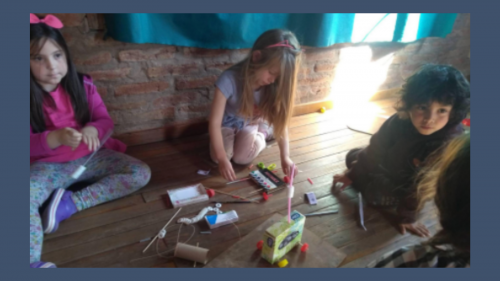
We are all aware that Project-based Learning has enjoyed global success. Children everywhere learn best by solving authentic challenges that respond to meaningful questions in science. But did you know that teachers and students in South America love the ML-PBL curriculum? Please read the blog written by Profesora Valeria Vincent. She and her students found the Toy unit perfect for teaching key concepts in science - on the opposite hemisphere of the planet!
Can children build moving toys with a scientific approach? What are we actually teaching when we teach science?
By Prof. Valeria Vincent - Cooperativa de Enseñanza Olga Cossettini, Córdoba, Argentina
Translation and photography by Frieda Powell
My class is working together, exchanging ideas, and engaging in trial and error and discovery. They learn by rethinking and retrying to solve the challenge. The value is in the creative process, and the exploration of our environment: They ask each other, “What is happening?” “Why does it happen this way?” “What and how do I make changes to achieve my goal?” “What do I have to have in mind?”
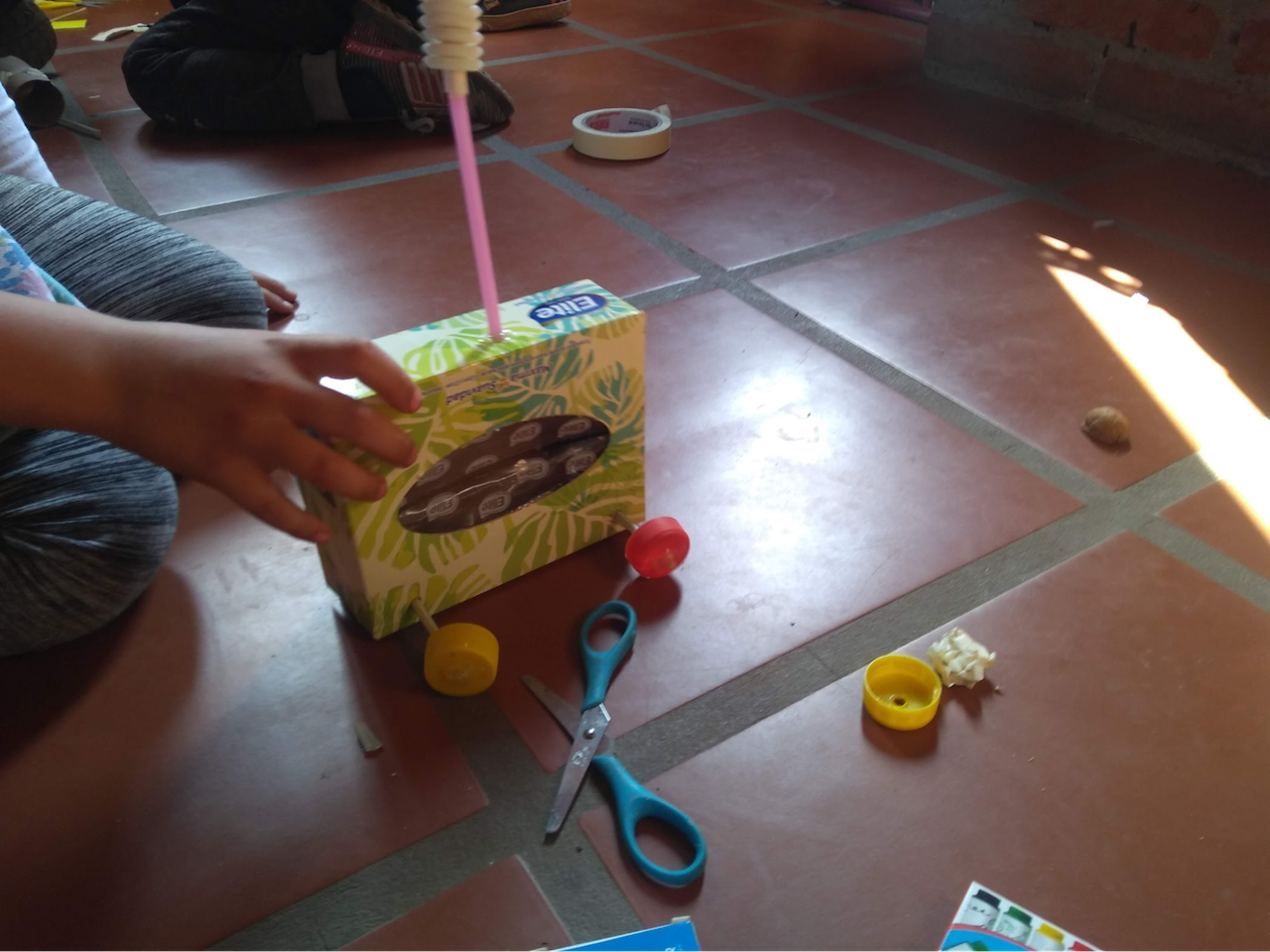
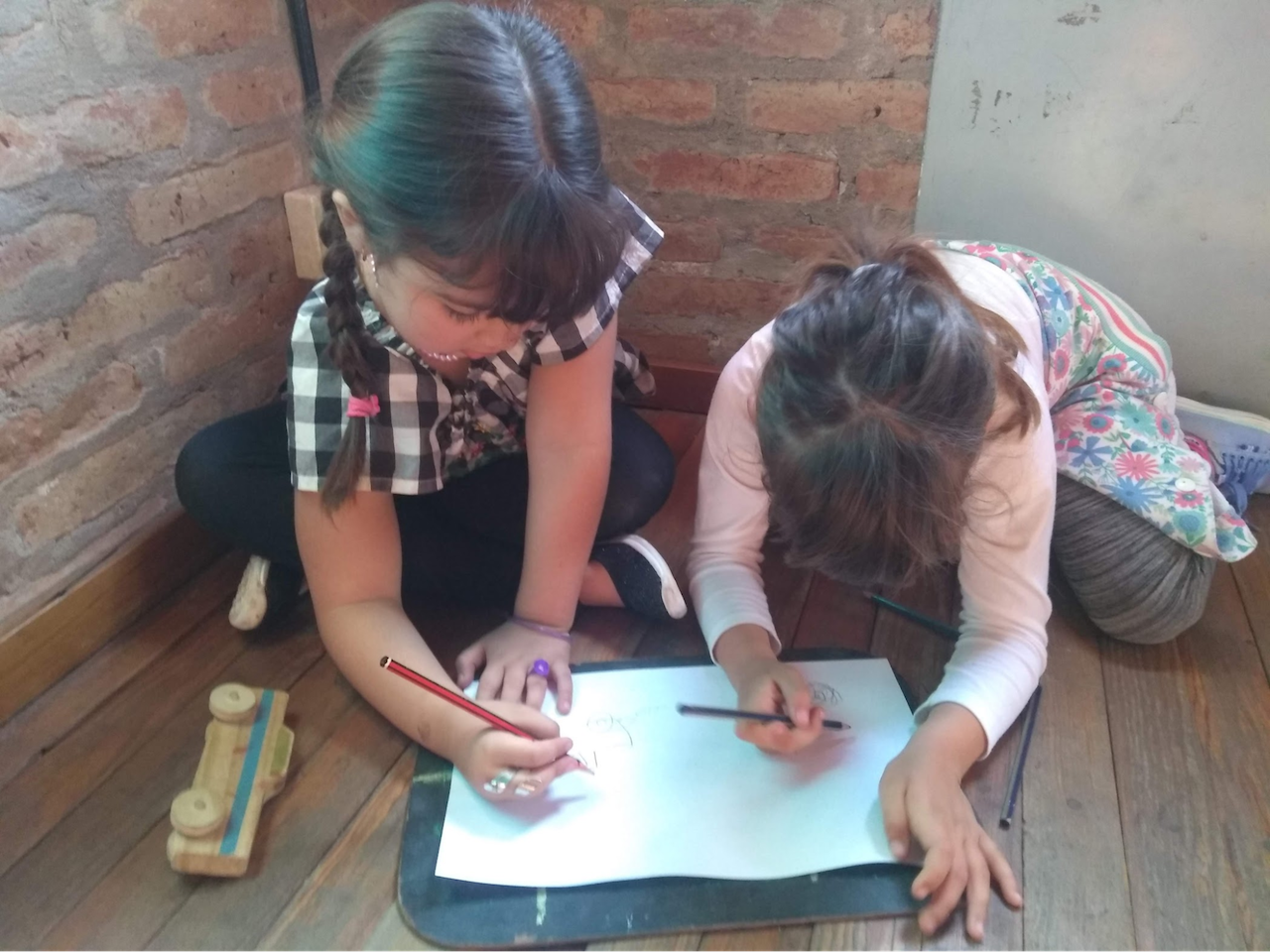
To teach and to learn about science is a matter surrounded by questions. We develop understanding so it can be questioned. And later we can continue toward an integral knowledge that will aid us to address our needs, along with those of our planet, in a healthy, balanced, and honorable way.
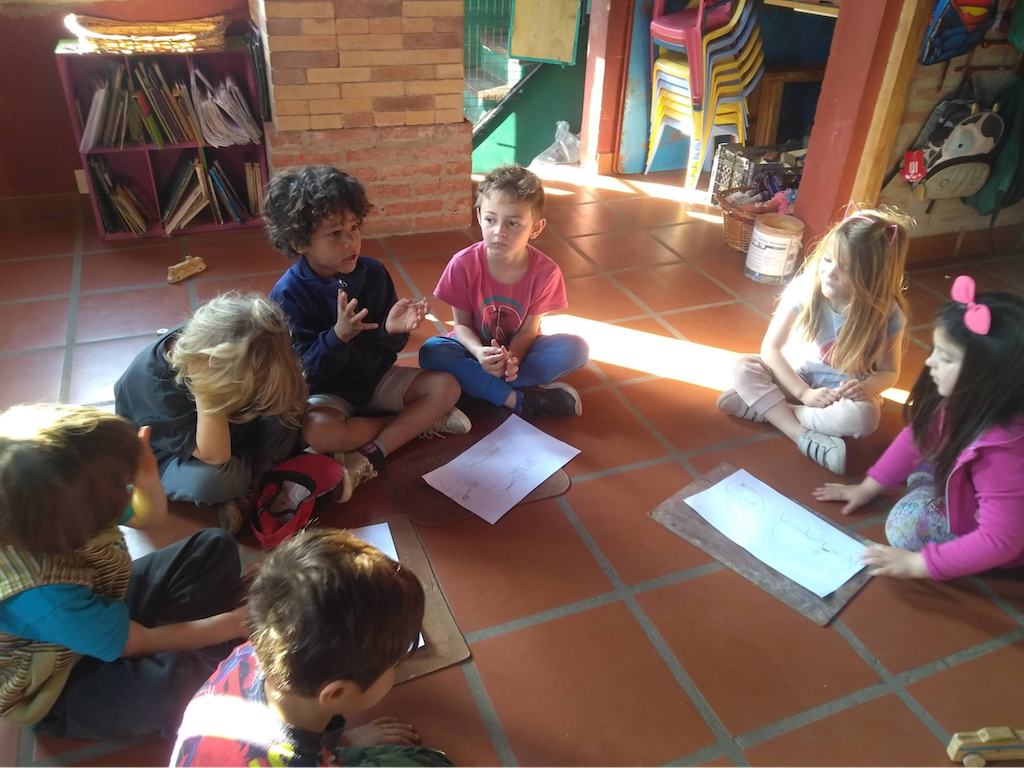
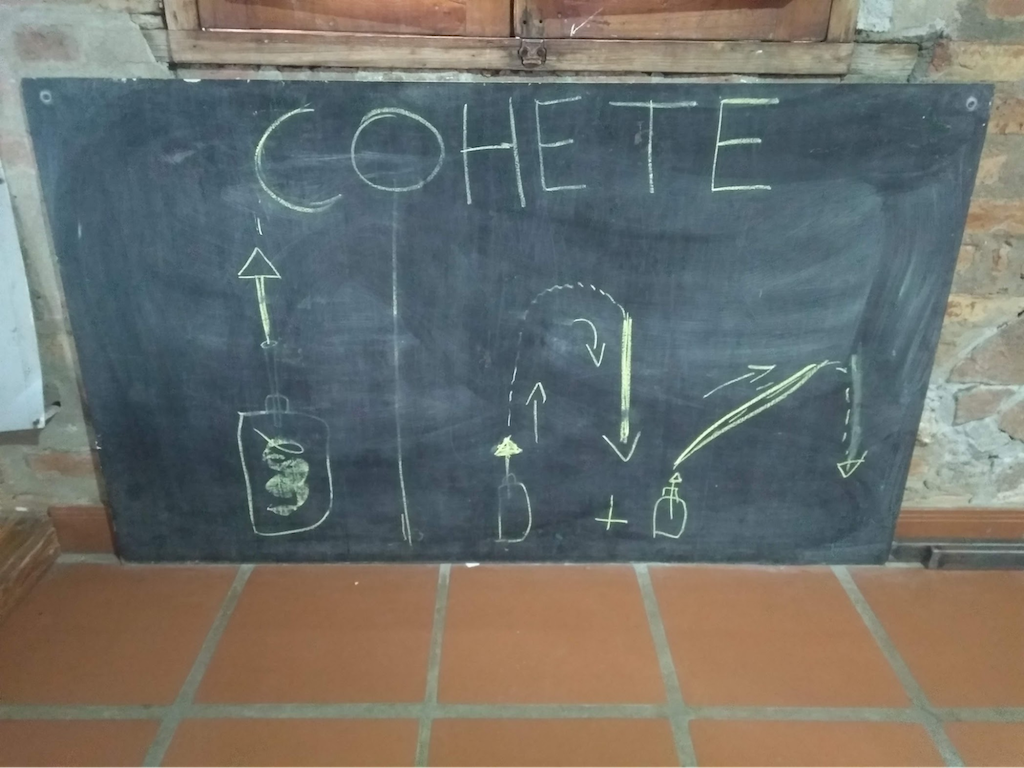
Translation:
¿Pueden los niños construir sus propios juguetes con movimiento desde el abordaje de las ciencias? ¿Qué enseñamos cuando enseñamos ciencia?
Trabajo cooperativo, intercambio de pensamientos, prueba y error, prueba y descubrimiento. Volver a pensar, volver a probar. Valorar el proceso de creación, de indagación y exploración del entorno: ¿qué sucede? ¿por qué sucede de esa manera? ¿qué y cómo modifico para lograr mi objetivo? ¿qué tengo en cuenta?
La enseñanza y el aprendizaje de las ciencias se rodea de preguntas. Los conocimientos se construyen para ponerlos en duda y avanzar hacia un saber integral que nos permita resolver las propias necesidades de manera equilibrada, sana y justa para con el planeta todo del que somos parte.
Prof. Valeria Vincent - Cooperativa de Enseñanza Olga Cossettini, Córdoba, Argentina
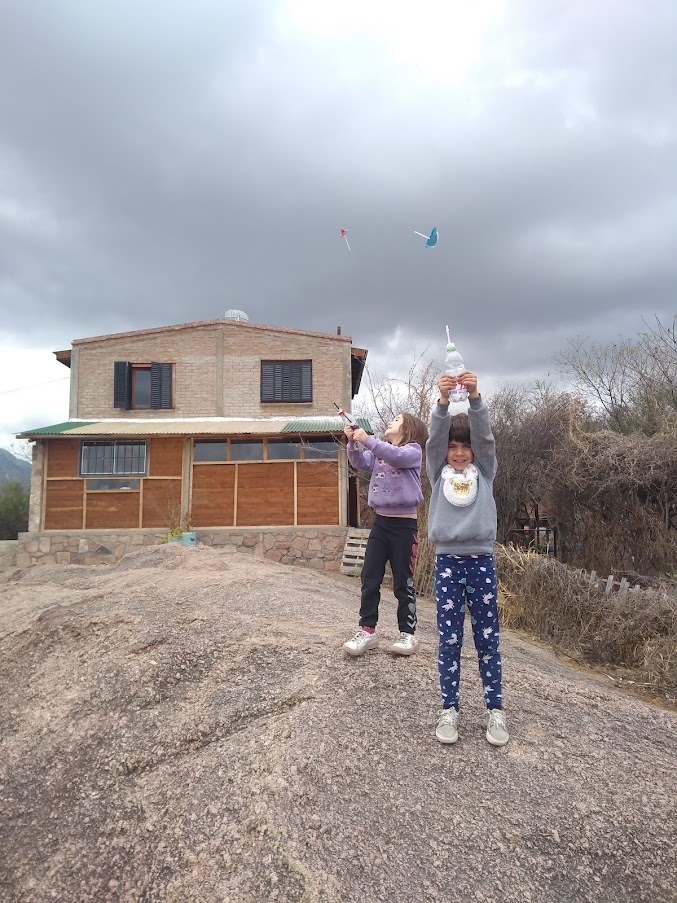
“Primero tuvimos que poner la pajita, pero una amiga nos ayudó por suerte, ¡y después lo apretamos y lanzó!” (Clara)
“First we had to put the little straw, but luckily a friend helped us, and then we squeezed it and it flew!”
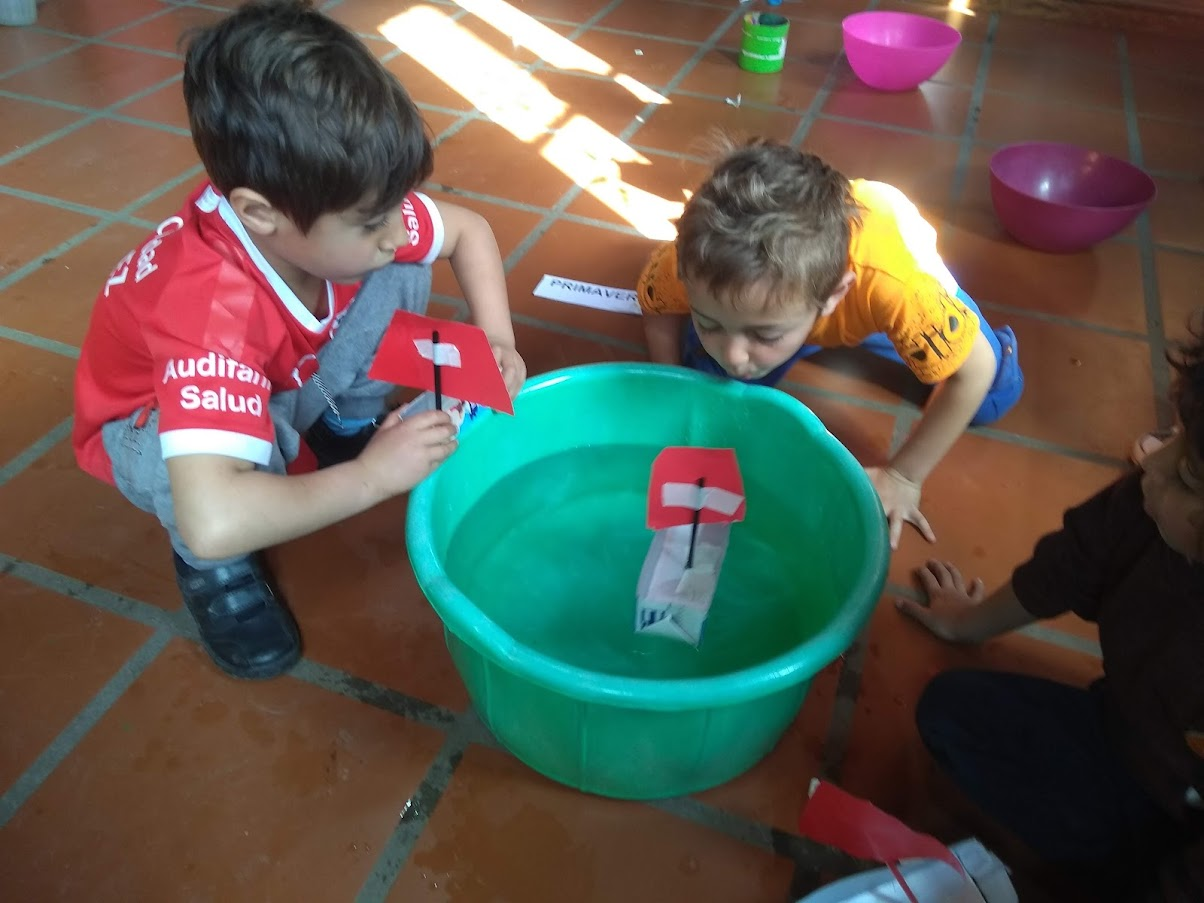
”Entre el barco y el cohete, la diferencia es que la soplé con la boca y el otro hacía fuerza con las manos” (Daniel)
“Between the boat and the rocket, the difference is that one I would blow with my mouth and the other I would make the force with my hands."

